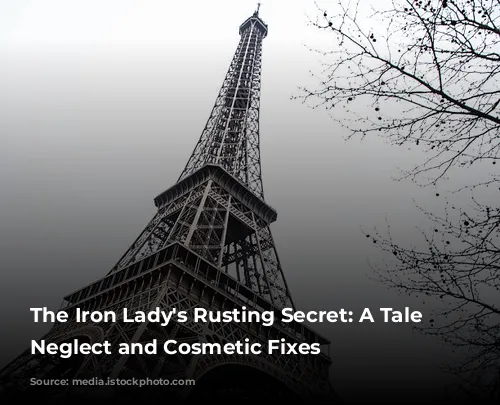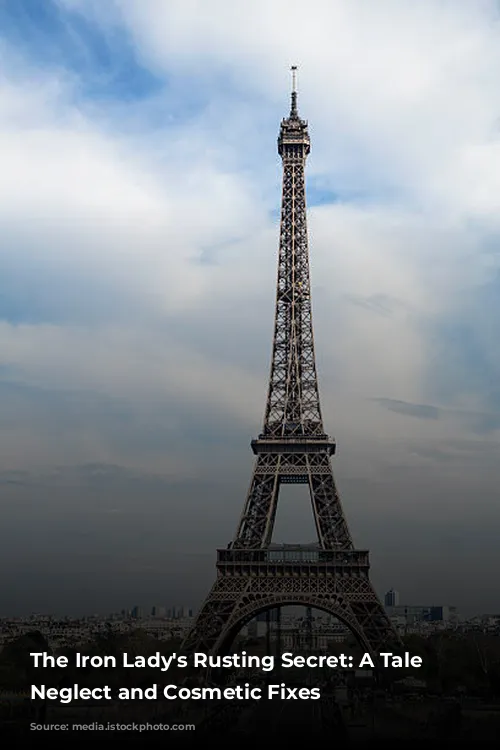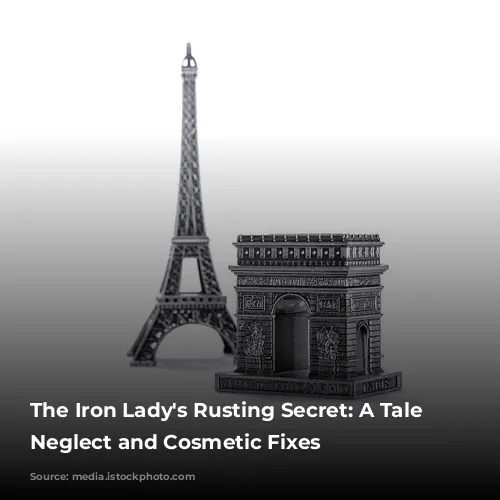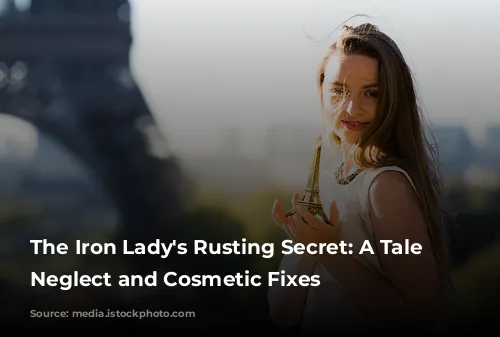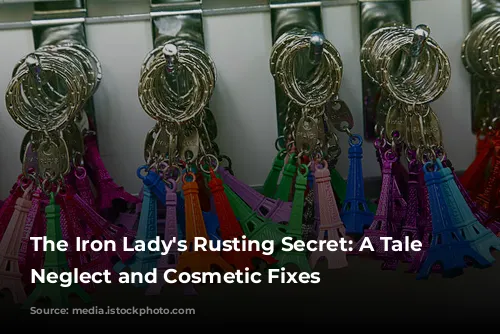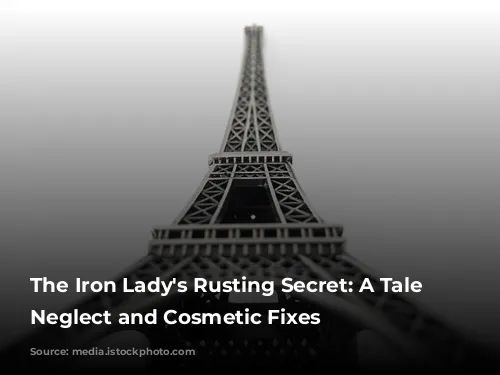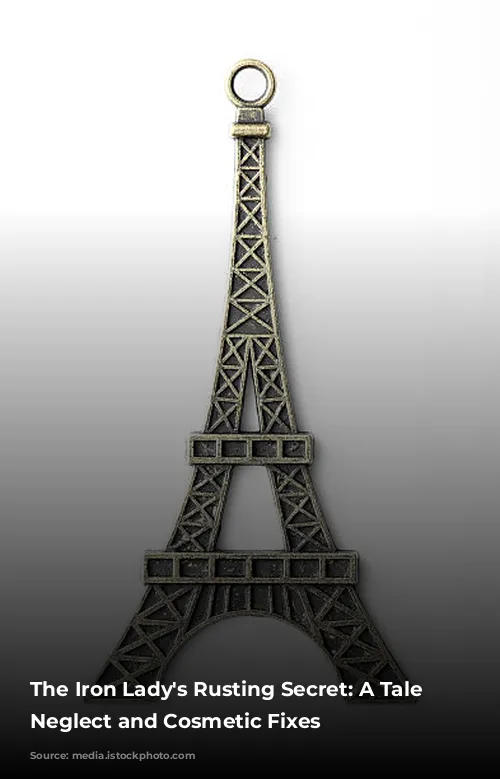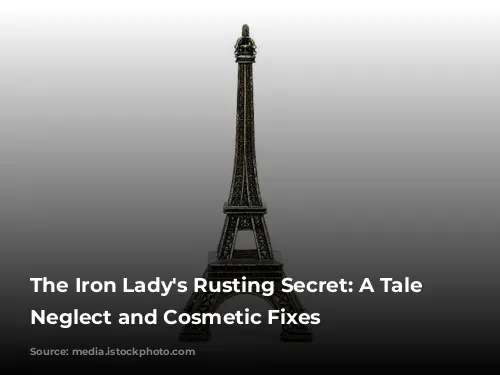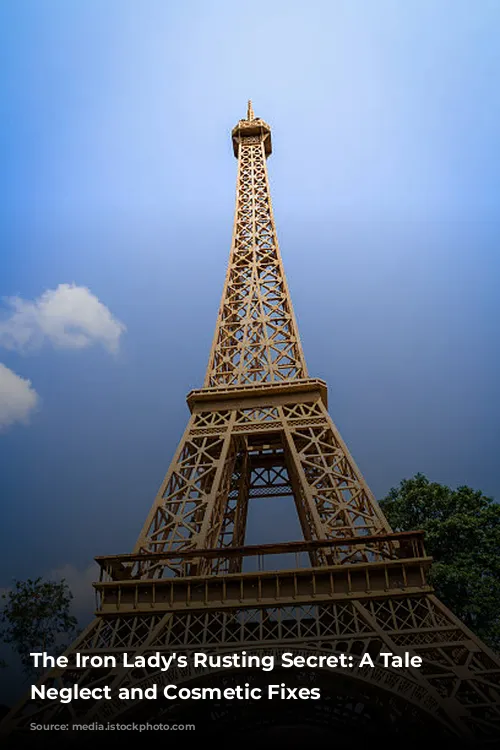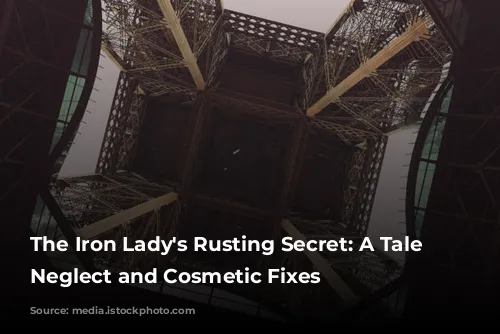The Eiffel Tower, Paris’s iconic landmark, stands tall, a testament to engineering prowess. But behind the glittering facade, a grim reality lurks.
Built in 1889, the Eiffel Tower was initially intended to be a temporary structure, slated for dismantling after just 20 years. Yet, thanks to meticulous maintenance, the tower has defied time, standing proud for over a century.
However, recent reports suggest the tower’s robust exterior masks a troubling truth: a rampant rust problem. Leaked documents have exposed the tower’s poor condition, raising concerns about its structural integrity. While a full repair is urgently needed, the tower is only receiving a cosmetic makeover for the 2024 Olympics, leaving experts deeply worried.
This cosmetic approach is akin to putting lipstick on a pig, a temporary fix that ignores the underlying issues. “If Gustave Eiffel saw the state of his creation, he’d have a heart attack,” one anonymous manager at the tower remarked, highlighting the severity of the situation.
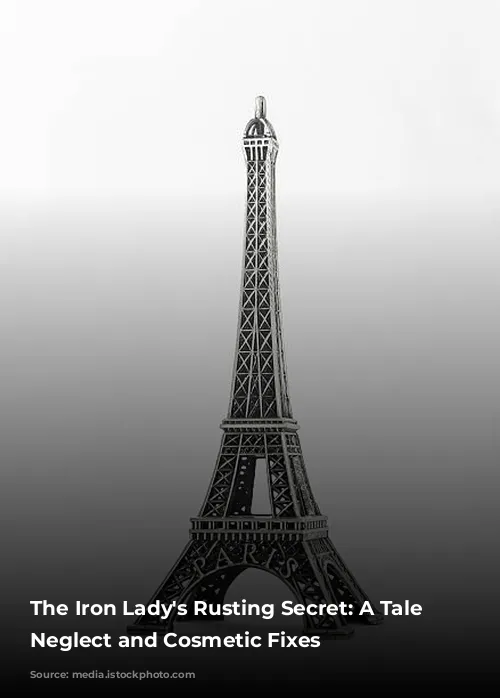
A Century of Neglect: The Tower’s Rusting Fate
The Eiffel Tower’s majestic iron structure was a marvel of engineering for its time. Constructed using puddle iron, a high-grade iron produced through a specific process, the tower was initially protected with four layers of red lead paint, a potent anti-corrosive agent at the time.
Gustave Eiffel, the architect behind the tower’s design, recognized the critical role of paint in the structure’s longevity. He advocated for regular repainting every seven years, emphasizing the importance of preventing rust before it took hold. But the tower’s current maintenance strategy seems to contradict Eiffel’s wisdom.
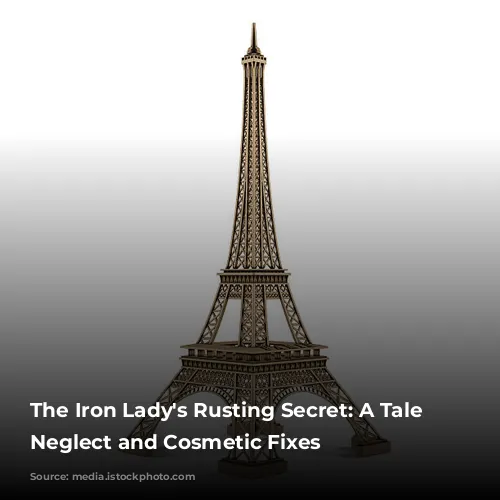
A Cosmetic Makeover: A Recipe for Disaster?
In preparation for the 2024 Olympics, the Eiffel Tower is undergoing its 20th repainting, a €60 million project. The plan originally called for stripping and repainting a third of the tower. However, delays caused by the pandemic and the discovery of concerning levels of lead in the old paint have significantly reduced the scope of the work, with only 5% of the tower receiving proper treatment.
Experts are sounding the alarm, criticizing the limited repainting as a mere cosmetic fix. They argue that the tower needs a complete stripping, repair, and repainting to address the widespread rust and prevent further deterioration. Painting over existing layers of paint, they warn, will only exacerbate the corrosion, accelerating the tower’s decline.
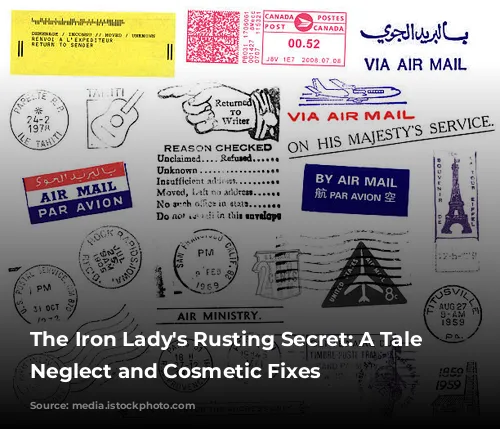
A Tower in Peril: Economic Interests vs. Structural Integrity
The company responsible for the tower’s maintenance, Sete, is reluctant to shut down the Eiffel Tower for a lengthy period due to the significant loss of tourist revenue. The tower attracts around 6 million visitors annually, contributing significantly to France’s tourism industry. Its closure in 2020 due to the pandemic resulted in a €52 million loss in income.
This focus on economic interests over structural integrity raises serious concerns about the long-term future of the Eiffel Tower. Previous reports from 2010 and 2014 highlighted the need for a comprehensive maintenance plan focused on addressing the aging metal structure.
A 2014 report by Expiris, an expert paint company, found cracks and rusting throughout the tower, with only 10% of the newer paint adhering to the structure. The report warned against simply applying new paint, stating that it would only worsen the adhesion issues and potentially lead to catastrophic failure.
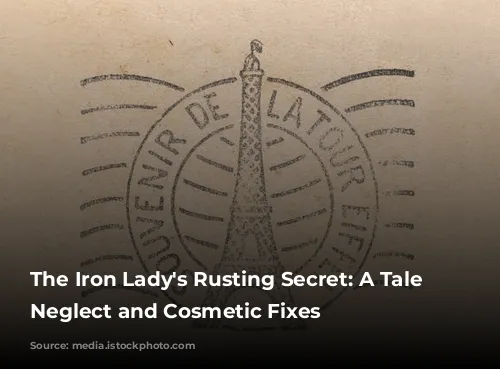
A Looming Crisis: Will the Eiffel Tower Survive?
The current situation paints a bleak picture for the Eiffel Tower’s future. While some argue that the original layers of paint still offer protection in certain areas, the cosmetic makeover will not address the rampant rust or the high lead levels, potentially exacerbating the problem.
Experts fear that the limited repainting will prove ineffective, at best, and at worst, will accelerate the tower’s deterioration. The tower’s fate hangs in the balance, a stark reminder that neglect can have devastating consequences for even the most iconic structures.
While the Eiffel Tower’s website offers a more optimistic outlook, claiming that the tower can last forever with proper maintenance, the evidence suggests a more concerning reality. The tower’s future remains uncertain, teetering on the edge of a potential crisis.
